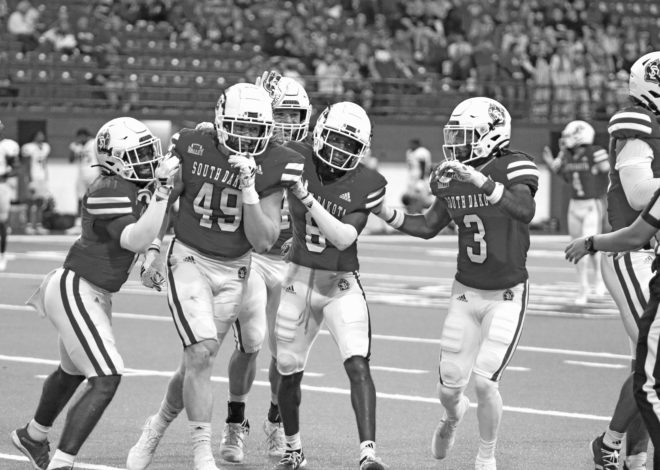
Pay to play: Scholarships for student athletes well deserved
America is obsessed with sports.
Need proof?
Take the Super Bowl. According to Statistia, in 2015, 114.4 million people in the United States tuned in to watch the big game. This amount of people equates to roughly one-third of the entire nation watching a sporting event. If the viewership wasn’t enough, the estimated Super Bowl related spending in the U.S. was $12.37 billion.
The Super Bowl is only one example of the insanity that is sports’ popularity in America.
Athletics are a large part of the American culture — some of the most famous celebrities of all time are so because of success in their sport. Some examples of this include Michael Jordan, Babe Ruth and Muhammad Ali.
So when it comes to college athletics, it’s no surprise that athletes are offered scholarships in return for the work they do for the university.
As a swimmer for USD, I speak for all college athletes in saying that the scholarship money athletes are given is well deserved.
Sure, under NCAA rules, college athletes are limited to 20 hours of training per week. But the 20 hour limit rule is not all-inclusive. Factor in team meetings, physical trainer visits, watching film, traveling and participating at games and competitions and so many other little things throughout the day — all of that time adds up.
According to Forbes, on average, the typical Division I college football player devotes 43.3 hours per week to his sport — 3.3 more hours than the typical American work week. Football is only one of many sports that requires this amount of time dedication.
In addition to college athletes committing a large amount of time to their sport, success in college sports is an advertisement for a university. It also improves the overall image of a university.
For example, during the 1982-83 season, Patrick Ewing’s basketball performance helped generate a 47 percent increase in undergraduate applications and a 40 point rise in freshman SAT scores during the following admissions cycle at Georgetown University.
While this is an extreme example, student attraction to a university because of athletics happens everywhere. I, for one, wouldn’t be attending USD had I not received an email about the athletic opportunities available to me here. Being from Colorado, I had never even heard of USD prior to that email.
Athletes at USD come from a wide range of places, many even out of the country. Of the entire women’s tennis team at USD, not a single one of them is from the U.S. Had it not been for athletics at USD, the diversity of the school would be minimized.
With the advancement of technology, it’s even more accurate that athletics brings attention to universities. For example, “March Madness,” or the NCAA college basketball tournament, has become such a big deal that $1 billion has been offered to anyone who predicts the perfect tournament bracket.
Millions of viewers will be paying attention to this tournament. This increases the popularity of a university, which can then raise the revenue the school generates from athletics.
This leads into my next point: athletics are important to universities because of the money they generate.
Not only does the university earn more money because of athletics, but the NCAA is making big bucks on college athletics. Last year, the NCAA earned nearly $11 billion in revenue.
With all this money being generated from college sports, it only seems fair that the athletes who are doing so are receiving some money for their efforts. Some even argue that free education isn’t enough and that college athletes should be paid for their performance.
Between intense and time-consuming training schedules and all the attention and money athletes bring to universities, college athletes deserve every ounce of scholarship money they are receiving. Arguably, they deserve even more.
If anybody has issues with the amount of money spent on college athletics, the “issue” lies within America’s culture. People love sports. The excitement of attending a game and rooting for their favorite team is a pastime that has become deeply engraved in American society.
As long as people continue to express this love of sports through viewership and consumerism, college athletics will always be funded, and with the amount of work college athletes do in and out of the sport, that money is well deserved.

